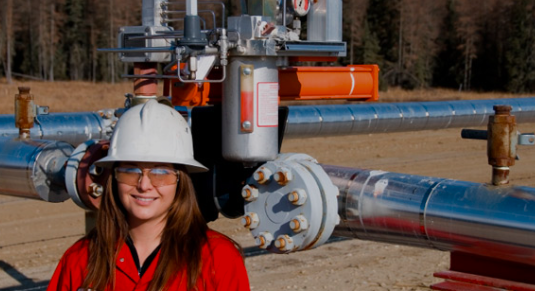The Role and Significance of Pipeline Engineer Jobs in America

Pipeline engineers play a crucial role in ensuring the efficient and safe transportation of fluids and gases through pipelines, which are the backbone of the energy infrastructure in America. This profession encompasses a wide range of responsibilities, from designing and constructing pipelines to ensuring their ongoing maintenance and integrity. In this comprehensive exploration, we will delve into the world of pipeline engineer jobs in America, examining their roles, responsibilities, challenges, and the evolving landscape of the energy sector.
Historical Perspective
The use of pipelines for transporting fluids dates back centuries, but the modern pipeline infrastructure in America has its roots in the mid-19th century. The construction of the Transcontinental Railroad and the subsequent discovery of oil in Pennsylvania spurred the development of pipeline technology. Over time, pipelines became indispensable for transporting oil, natural gas, and other critical fluids.
The Role of Pipeline Engineers
Design and Construction
One of the primary responsibilities of pipeline engineers is the design and construction of pipelines. This involves extensive planning to determine the route, materials, and specifications for the pipeline. Engineers must consider factors such as terrain, environmental impact, safety regulations, and the type of fluid or gas being transported. The construction phase requires close collaboration with various stakeholders, including landowners, environmental agencies, and construction crews.
Maintenance and Integrity Management
Once pipelines are operational, pipeline engineers play a vital role in their ongoing maintenance and integrity management. This includes regular inspections, monitoring for potential issues, and implementing maintenance programs to ensure the longevity and safety of the pipeline. Integrity management is a critical aspect, involving the use of advanced technologies to detect and address potential threats to the pipeline’s structural integrity.
Compliance and Regulatory Affairs
Pipeline engineers must navigate a complex web of regulations and compliance standards. They work closely with regulatory bodies such as the Pipeline and Hazardous Materials Safety Administration (PHMSA) to ensure that pipelines adhere to safety and environmental standards. Staying abreast of evolving regulations and implementing necessary changes is crucial for pipeline engineers.
Environmental Considerations
In an era where environmental sustainability is a top priority, pipeline engineers are increasingly tasked with incorporating eco-friendly practices into their work. This involves minimizing the environmental impact of pipeline construction, implementing leak detection systems, and exploring innovative technologies to reduce the carbon footprint of the pipeline industry.
Challenges Faced by Pipeline Engineers
Safety Concerns
Safety is paramount in the pipeline industry, and engineers must contend with various safety challenges. This includes designing pipelines to withstand natural disasters, implementing emergency response plans, and ensuring that construction and maintenance activities adhere to strict safety protocols.
Technological Advancements
The rapid pace of technological advancements presents both opportunities and challenges for pipeline engineers. On one hand, new technologies such as advanced sensors and data analytics can enhance pipeline monitoring and maintenance. On the other hand, integrating these technologies into existing infrastructure and keeping up with the evolving landscape can be a daunting task.
Public Perception and Opposition
Pipeline projects often face public opposition due to concerns about environmental impact, safety, and land rights. Pipeline engineers must navigate these challenges by engaging with communities, addressing concerns, and advocating for the importance of pipelines in meeting energy demands.
Economic Considerations
Economic factors, including fluctuating oil and gas prices, funding availability, and the overall economic climate, can impact the feasibility and profitability of pipeline projects. Pipeline engineers must be adept at assessing economic variables and making informed decisions to ensure the success of their projects.
The Evolving Landscape
Renewable Energy and Transition
As the world transitions towards renewable energy sources, pipeline engineers find themselves at the forefront of adapting existing infrastructure or designing new systems to accommodate these changes. This shift involves integrating renewable energy sources such as hydrogen into existing pipelines and exploring innovative solutions for transporting and storing green energy.
Digitalization and Automation
The digitalization of the pipeline industry is transforming the way engineers approach their work. Advanced data analytics, artificial intelligence, and automation are increasingly being used to monitor pipeline performance, predict potential issues, and optimize maintenance schedules. This digital transformation enhances efficiency, reduces downtime, and improves overall system reliability.
Global Connectivity
In an interconnected world, pipeline engineers are not only focused on domestic projects but are also involved in international ventures. Cross-border pipelines play a crucial role in global energy trade, and engineers must navigate international regulations, geopolitical considerations, and diverse cultural landscapes.
Education and Skills for Pipeline Engineers
Becoming a pipeline engineer typically requires a bachelor’s degree in engineering, preferably in disciplines such as civil, mechanical, or petroleum engineering. Some positions may require advanced degrees or specific certifications. Additionally, gaining practical experience through internships or entry-level positions is valuable in this field.
Key skills for pipeline engineers include:
- Technical Proficiency: A solid understanding of engineering principles and specialized knowledge in pipeline design, materials, and construction.
- Regulatory Knowledge: Familiarity with local, state, and federal regulations governing pipeline construction and operation.
- Communication Skills: The ability to communicate effectively with diverse stakeholders, including regulatory bodies, community members, and project teams.
- Problem-Solving: Pipeline engineers must be adept at identifying and solving complex problems, whether they relate to design challenges, safety concerns, or environmental considerations.
- Adaptability: Given the dynamic nature of the industry, pipeline engineers must be adaptable to technological advancements, regulatory changes, and shifts in the energy landscape.
Conclusion
Pipeline engineer jobs in America are pivotal to the nation’s energy infrastructure, ensuring the safe and efficient transport of vital fluids and gases. The role is evolving, with engineers facing challenges related to safety, environmental sustainability, and technological advancements. As the energy sector undergoes a transformative shift towards renewable sources, pipeline engineers are at the forefront of integrating these changes into existing infrastructure. The profession requires a unique blend of technical expertise, regulatory knowledge, and adaptability, making it a dynamic and rewarding field for those passionate about shaping the future of energy transportation.





